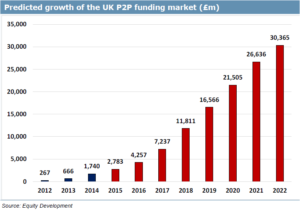With the appointment of Andrew Bailey as CEO of the FCA there has already been some speculation as to what changes will be made. He certainly faces a tough challenge; Parliament will debate this week whether to give the regulatory body another vote of no confidence. Here are some thoughts from the alternative finance perspective on what his appointment holds in the short and long term.
- Bailey will be welcomed as a CEO if he is willing to listen and promulgate policy, unlike some of his predecessors. Martin Wheatley and his infamous “shoot first and ask questions later” policy immediately springs to mind: the regulator needs to maintain a moderate tone despite its eagerness to be the antithesis of its defunct predecessor, the FSA.
- Bailey needs to keep in mind that over-regulation and restriction of trade could strangle the City and, whilst some may disagree, the FCA needs to help facilitate business as much as possible. Britain needs to remain attractive to investment and business; a move in the wrong direction would be catastrophic for the economy.
- Policy needs to be well thought through and as lucidly set out as possible to avoid the half-baked ideas that have dogged the regulatory body’s attempts to keep up with a changing world. I would wager that the FCA is better off slightly behind the curve if it means avoiding botched legislation that would present serious obstacles in the future.
- The process of applying to be FCA regulated, something that the P2P lending industry is going through at the moment, is incredibly clunky. Yes, the regulators need to be as thorough as possible, but there is room for acceleration. Answering questions on applications should take days rather than weeks, and processing applications should take less than the 6-12 month projected time frame. All it takes is a clear plan, which will come from better leadership and management.
- Back in November, Sir Hector Sants (pictured below), former chief executive of the FSA, suggested that the FCA should be stripped of its punitive power as the regulator failed to ensure that post- financial crisis regulation produced a level playing field. Outsourcing the task to an independent body would free up resources to focus on what the FCA was set up to do; Bailey could do worse than heed Sants’s key recommendations.
